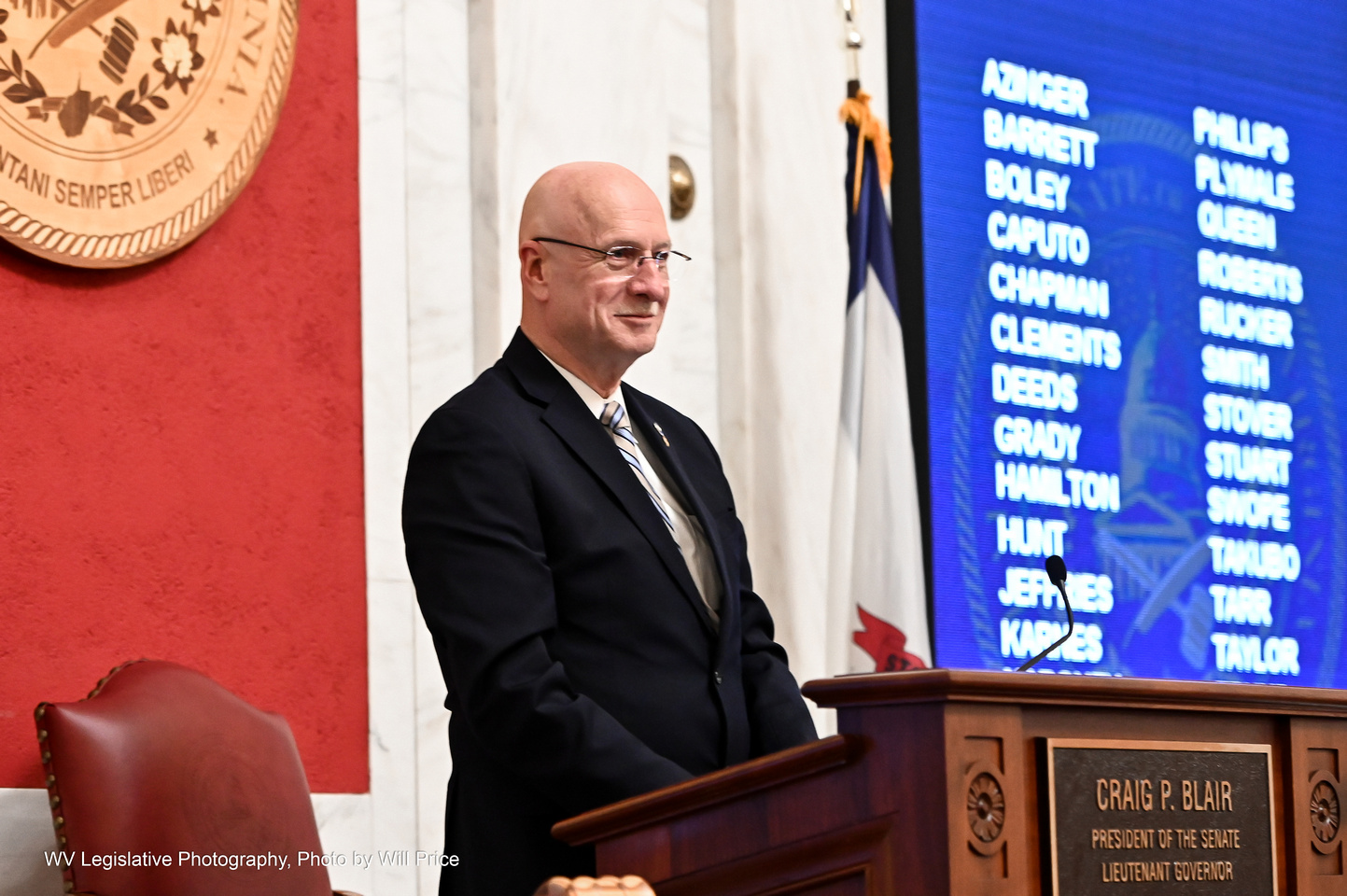This is a developing story and may be updated.
Updated on April 18, 2023 at 8:13 a.m.
A sentence was removed on April 18, 2023 at 10:04 a.m due to a lack of verification
State Senate President Craig Blair, R-Berkeley, said he plans to draft legislation that calls for the death penalty after conviction for the illicit manufacturing or wholesale distribution of the illicit drug fentanyl.
“It’s devastating our children, it’s devastating our schools, exhausting our teachers, overwhelming our foster care system, stressing out emergency services, our hospitals, our law enforcement and more,” Blair said. “And worst of all, it’s destroying our families and our communities.”
The DEA defines fentanyl as a potent synthetic opioid drug approved by the Food and Drug Administration for use as an analgesic (pain relief) and anesthetic. It is approximately 100 times more potent than morphine and 50 times more potent than heroin as an analgesic. An Associated Press report notes that since 2000, West Virginia has had by far the highest rate of opioid-related deaths in the nation. Blair said the deadly inclusion of fentanyl into other drugs is pervasive and growing.
He said capital punishment would be the ultimate deterrent for those bringing fentanyl into West Virginia.
“Most of the time, these people aren’t addicts that are actually manufacturing and or distributing on the wholesale level,” Blair said. “What they’re doing is they’re just making profits off the very people that are addicted to it. I want to tell everybody that is actually using heroin and fentanyl that it’s time to get help, get clean, or get out of the state of West Virginia.”
Blair said there would need to be a line of demarcation defined between a street user and a distributor. Currently, W. Va. Code § 60A-4-414 says:
(1) If the net weight of fentanyl involved in the offense is less than one gram, such person shall be imprisoned in a correctional facility not less than two nor more than ten years.
(2) If the net weight of fentanyl involved in the offense is one gram or more but less than five grams, such person shall be imprisoned in a correctional facility not less than three nor more than fifteen years.
(3) If the net weight of fentanyl involved in the offense is five grams or more, such person shall be imprisoned in a correctional facility not less than four nor more than twenty years.
“A pound of fentanyl would kill every person in any given county in this state,” Blair said. “So yes, you’re gonna have a line of delineation. I’m not looking for the guy on the street, that’s a drug addict who can get help.”
West Virginia abolished the death penalty in 1965, the last execution was in 1959. Blair says reinstating capital punishment for manufacturing or wholesaling fentanyl could come with legislation.
“The legislature would actually have to pass a statute,” Blair said. “There’s nothing in our constitution that prohibits it. And I wouldn’t even be opposed to putting a constitutional amendment on the ballot and doing it.”
Blair said those found guilty under his bill should be put to death by a lethal injection of fentanyl.
He said he will spend the next couple months putting a comprehensive plan together on a death penalty bill for fentanyl wholesale distribution, with a goal of setting a national example.
“With this law, West Virginia will become a leader once again in the nation on how we’re dealing with the problems that we have in this state,” Blair said.
New WV-ACLU President Danielle Walker issued the following statement regarding Blair’s death penalty proposal:
The death penalty is state-sanctioned murder, period. West Virginia wisely abolished this form of cruel and unusual punishment nearly 60 years ago, and there is no reason to resurrect it now. There is no evidence that capital punishment deters crime and plenty of evidence that it kills innocent people. The ACLU will use every tool at our disposal to make sure the death penalty never returns to West Virginia.
